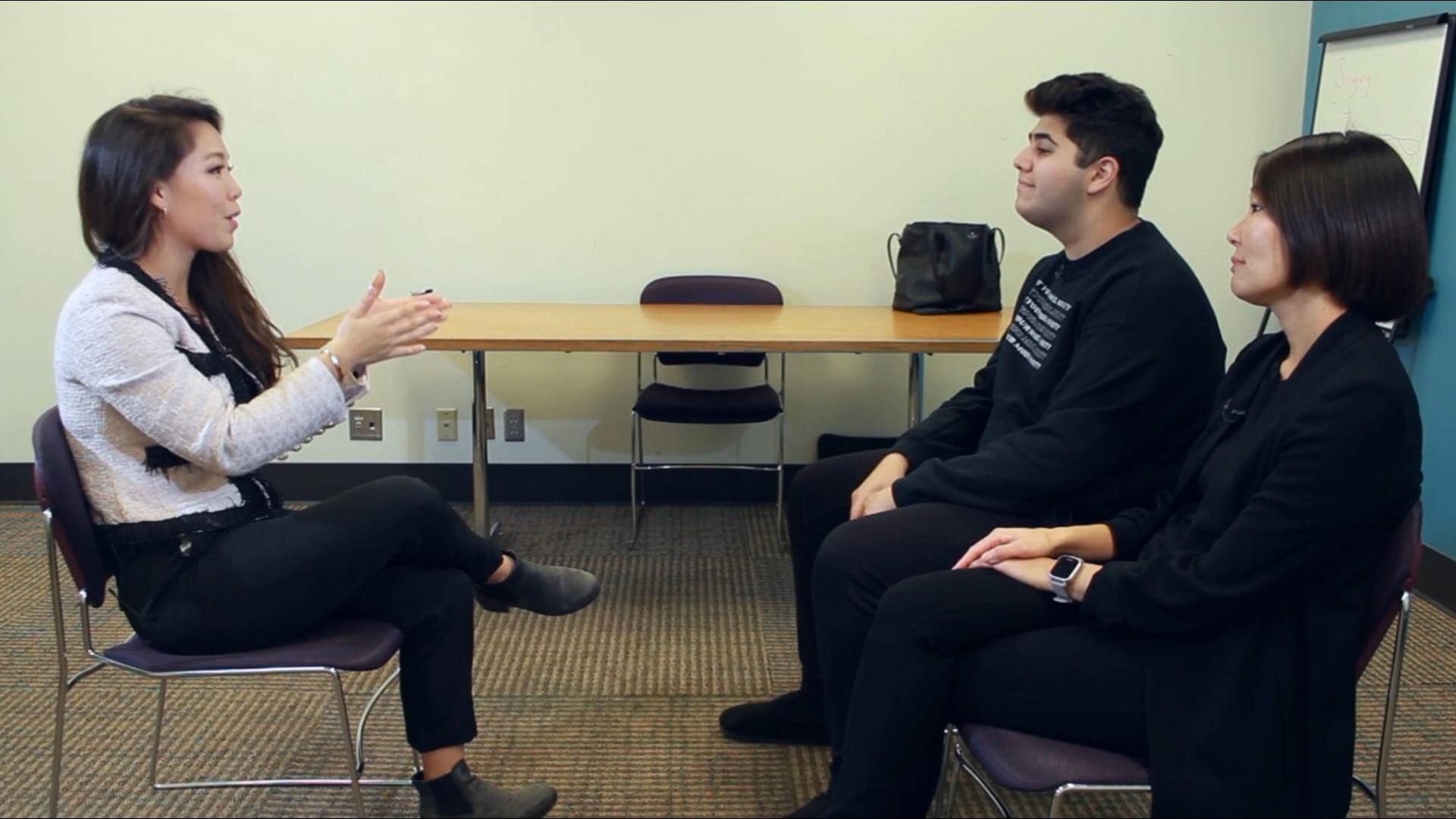EDINA, Minn. — A lot of things came out of COVID. More specifically, a lot of hate.
KARE 11 has documented multiple incidents of hate against the Asian American Pacific Islander community following the beginning of the coronavirus pandemic.
A Hmong family in Woodbury came home to a hateful note on their door in March of 2020. The note called them a racial slur, and told them to "take the virus back to China."
An Indian parent expressed concerns about the conversations her son was having at school, where he said his peers told him to go back to Mexico, due to the color of his skin.
"Even after two years, he's still asking me that — 'Am I American?'" Geetanjali Mittal said back in September of 2021.
But even with COVID's slower pace, compared to the last two — nearly three— years, hate continues to spread.
Specifically in schools, highlighted by a video that surfaced in Edina, March of 2022.
The video showed several of Edina High School students who were doing the Nazi salute, as well as mocking Asian accents.
According to a national survey by Stop AAPI Hate in 2021, one in three parents said they were concerned that their child was going to be a victim of anti-AAPI hate in an unsupervised area or on the way to school.
Of the reported hate incidents from March 2020 to March 2022, 9% of those incidents occurred at a school, a college or a university. These only document the incidents that have been reported — keeping in mind that hate incidents are underreported, because victims fear retaliation or worry about "rocking the boat," after having spoken up.
But since that March 2022 video, a lot has changed within Edina Public Schools.
The Edina Asian American Alliance formed in response to the video, because parents, students and former students like Isa Li, were spurred to take action.
"I wasn't surprised watching my classmates do that — it was definitely to be expected — but still disappointing nonetheless," Li said via Zoom.
Li, who has since graduated, says the roles EAAA plays in the community, vary. Sometimes that looks like advising policy. Sometimes it involves advocacy work. And consistently, the group is a community liaison.
"We're in regular correspondence with district officials and administrators, and working with the district has been really enlightening and they are open to hearing what everyone has to say," Li explained.
Parent liaison of EAAA, Kelly Condit-Shrestha said they've helped with structural changes as well, like establishing a clear reporting system for incidents of bias.
"Post March incident, I think it was just evidence that [the school district wasn't] equipped for a fully responsive and satisfactory response after that," Condit-Shrestha said. "And so through this partnership that's what we're trying to support."
As for Sabeeh Mirza, current senior at EHS and also student liaison, he said his personal comfort level has changed.
"Before March, I would not have known what to do, and quite honestly I would not have reported it simply because of the fact that it seemed like a lot of work for no reason," Mirza said. "And [I] didn't want to paint a target on my back."
When questioned why it was on the people of color to fix this specific issue, Mirza said it's because there isn't much choice.
"In an ideal world it wouldn't be, but at the end of the day we are the ones directly impacted," he said. "We see, we know, what it feels like. We're the ones who have to deal with the consequences, and while it would be nice to some extent for other people to reach out or try to bridge a gap, at the end of the day, they're living in a state of ignorance not by choice; but it's the fact they simply don't understand."
"We can make all these policy changes we can implement all these new rules, but at the end of the day what really needs to change is the culture," Li added. "And how do you do that how do you change culture? So with EAAA that's what we feel like we're working towards."
Li, bringing up an important reminder that a culture shift involves advocating for all groups under pressure.
"[It's about] making sure that when we're talking about racism and inequity, we're including all groups," she said. "That this isn't just a problem that's limited to the Asian American community."
Watch more local news:
Watch the latest local news from the Twin Cities in our YouTube playlist:

